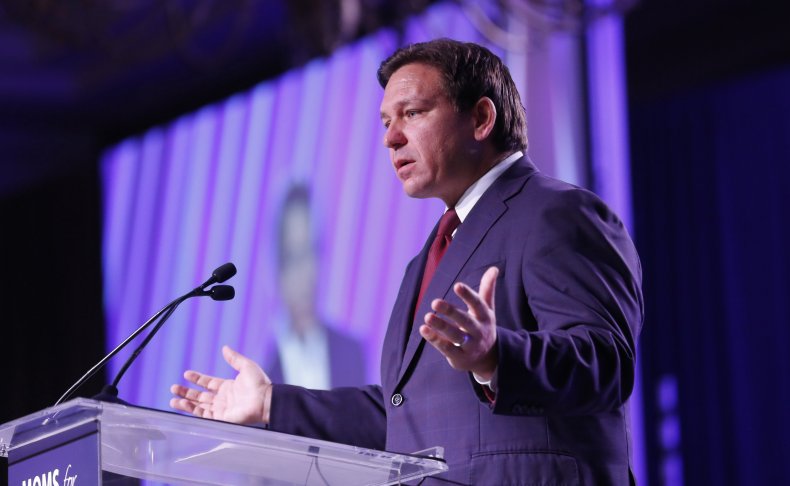
As soaring inflation keeps pushing prices higher, leaving many struggling to make ends meet, Florida is turning again to stimulus checks as a solution to alleviate the difficult situation—at least for foster and adoptive families.
Florida’s foster and adoptive families are receiving a one-time payment of $450 per child in their care through an initiative called “Hope Florida—A Pathway to Prosperity.”
The money to pay for the stimulus checks is coming directly from the budget signed off by Florida’s Governor Ron DeSantis, with $35.5 million going to support nearly 59,000 families in the state.
“This one-time payment can be used for anything from buying diapers to fueling up at the pump,” read the letters sent to the Floridians receiving the check.
In April, DeSantis also approved a $100 million budget to be allocated to first responders —including firefighters, paramedics, emergency medical technicians, law and enforcement agents— in the form of one-time $1,000 checks.
Florida is not the only state resorting to tax rebates in the midst of rising inflation and a cost-of-living crisis. Around a dozen states —including California— are sending similar checks, which, significantly, are never called “stimulus checks” but are instead often referred to as inflation relief checks.
California has announced incoming checks, in the form of a one-time “middle-class tax refund”, of a sum between $200 and $1,050 which will be sent to some 23 million taxpayers, depending on their income. The funds to support the checks are part of the state’s budget approved by Governor Gavin Newsom and state lawmakers.
The checks do remind you of the federal stimulus payments handed out by the federal government during the pandemic, though their purpose is not quite the same.
The question, both in the case of Florida and California —one a Republican-run state and the other a Democratic-run one— is the same: will the checks work? Or will pumping more money into the economy of these states worsen inflation?
Will the Florida Governor Checks Affect Inflation?
While it would appear a good idea to offer financial relief to families struggling with the rising costs of basic necessities like food and fuel, economics experts are usually hostile to offering such a form of aid.
Inflation normally falls when people start spending less, and could be fueled by more spending. The fear is that people receiving big checks will go out and spend them immediately, pouring gas on the inflation fire.
Christina Pushaw, DeSantis’ spokesperson, argued that in the case of the Florida’s one-time $450 per child checks to foster and adoptive families, the payments won’t raise inflation.
“Inflation is caused by the federal govt printing money and deficit spending, which has happened at a record pace since covid,” Pushaw wrote on Twitter. “Unlike our indebted federal govt, the State of Florida has a budget surplus due to good management by@GovRonDeSantis. That money belongs to Floridians,” she said.
Inflation is caused by the federal govt printing money and deficit spending, which has happened at a record pace since covid. Unlike our indebted federal govt, the State of Florida has a budget surplus due to good management by @GovRonDeSantis. That money belongs to Floridians. https://t.co/t2KrwV0XBL
— Christina Pushaw 🐊 🇺🇸 (@ChristinaPushaw) July 19, 2022
A Twitter user responded to Pushaw’s post pointing out that Florida “ended our unemployment benefits earlier than most states. That money is from the federal he didn’t spend.” Florida ended the federal Pandemic Unemployment Assistance (PUA) and Pandemic Emergency Unemployment Compensation (PEUC) benefits on September 6, 2021.
DeSantis has been vocal during the pandemic in his opposition to the federal stimulus checks to support the U.S. economy in dire times. Several media organizations—including the Orlando Sentinel and Governing— have pointed out how DeSantis, after disparaging the federal government’s big spending during the pandemic, is now benefiting from federal funding which has lifted his budget by millions of dollars.
Governing argues that two years of federal funding are now allowing DeSantis to fund his support programs—including the latest $450 checks.

